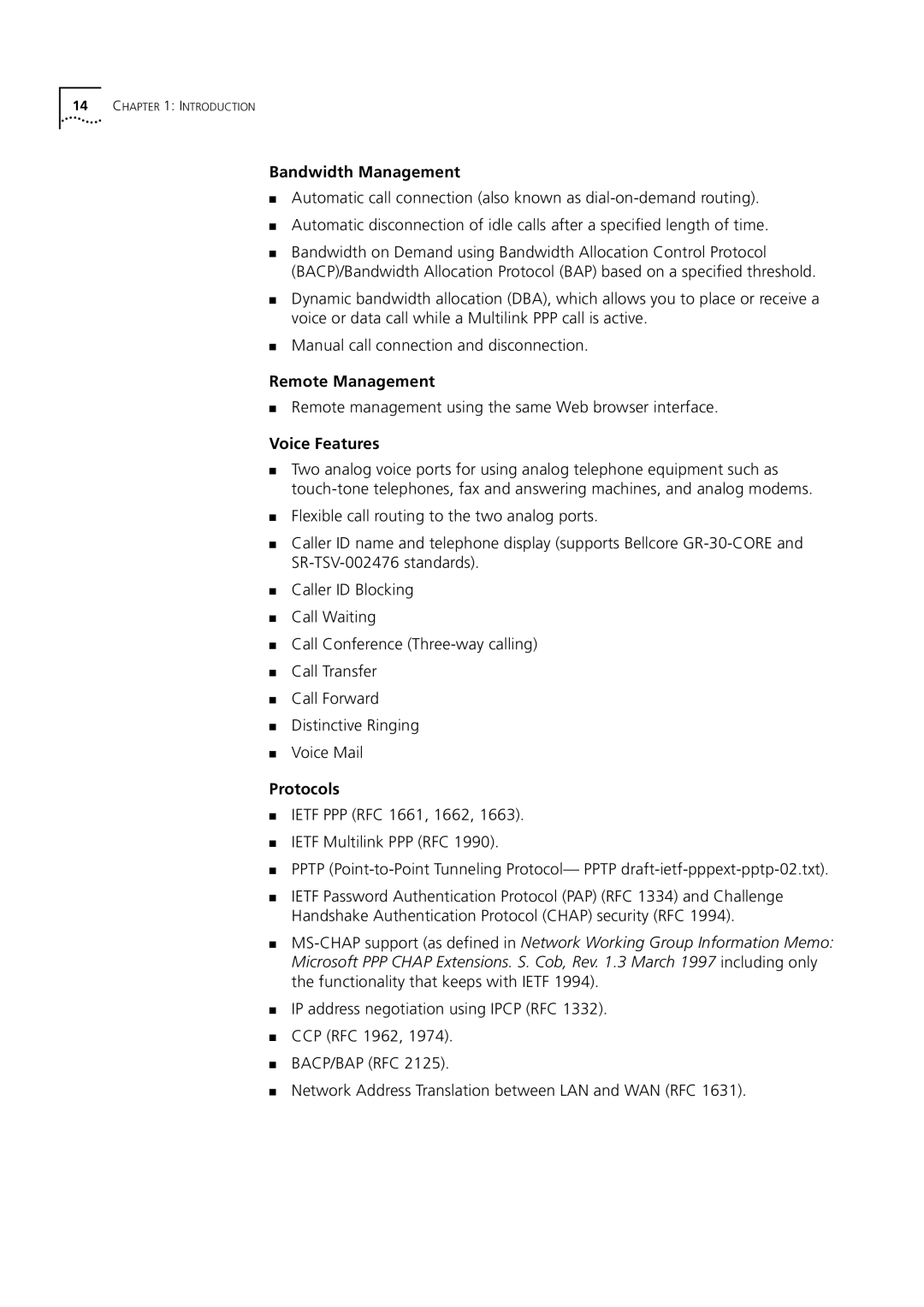14CHAPTER 1: INTRODUCTION
Bandwidth Management
■Automatic call connection (also known as
■Automatic disconnection of idle calls after a specified length of time.
■Bandwidth on Demand using Bandwidth Allocation Control Protocol (BACP)/Bandwidth Allocation Protocol (BAP) based on a specified threshold.
■Dynamic bandwidth allocation (DBA), which allows you to place or receive a voice or data call while a Multilink PPP call is active.
■Manual call connection and disconnection.
Remote Management
■Remote management using the same Web browser interface.
Voice Features
■Two analog voice ports for using analog telephone equipment such as
■Flexible call routing to the two analog ports.
■Caller ID name and telephone display (supports Bellcore
■Caller ID Blocking
■Call Waiting
■Call Conference
■Call Transfer
■Call Forward
■Distinctive Ringing
■Voice Mail
Protocols
■IETF PPP (RFC 1661, 1662, 1663).
■IETF Multilink PPP (RFC 1990).
■PPTP
■IETF Password Authentication Protocol (PAP) (RFC 1334) and Challenge Handshake Authentication Protocol (CHAP) security (RFC 1994).
■
■IP address negotiation using IPCP (RFC 1332).
■CCP (RFC 1962, 1974).
■BACP/BAP (RFC 2125).
■Network Address Translation between LAN and WAN (RFC 1631).
